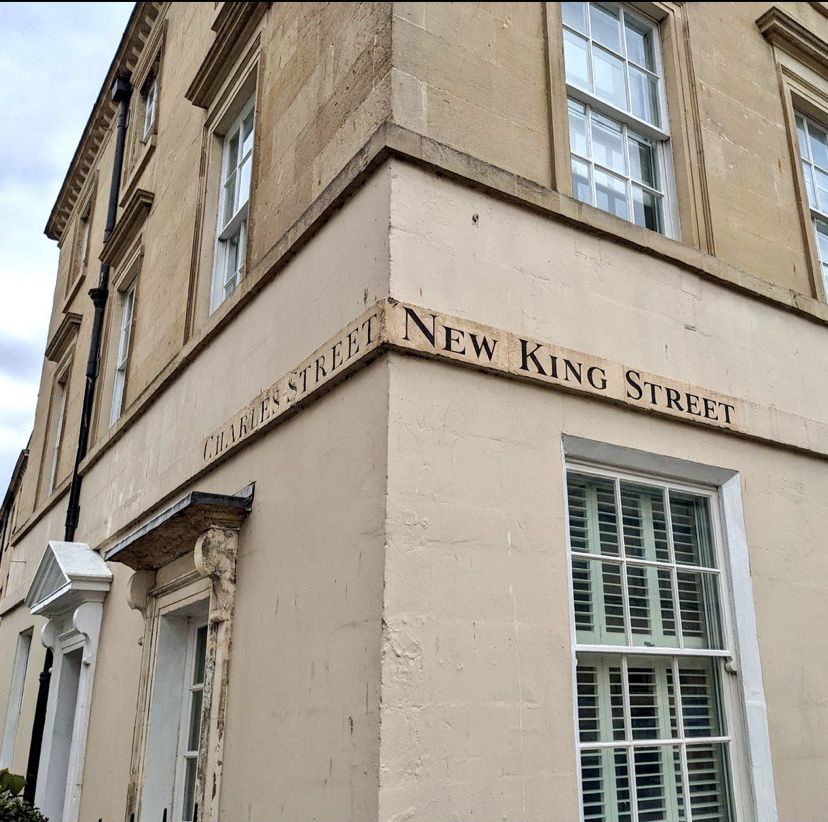Classical selfie
All that’s missing is a smartphone.
Seen in the gardens of Dartington Hall.
Quote of the Day
”The land of my fathers. My fathers can have it.”
- Dylan Thomas, speaking of his native Wales.
Musical alternative to the morning’s radio news
Keith Jarrett – Over the Rainbow (Tokyo 1984)
Long Read of the Day
Heresy
Thoughtful essay by Paul Graham.
April 2022
One of the most surprising things I’ve witnessed in my lifetime is the rebirth of the concept of heresy.
In his excellent biography of Newton, Richard Westfall writes about the moment when he was elected a fellow of Trinity College:
Supported comfortably, Newton was free to devote himself wholly to whatever he chose. To remain on, he had only to avoid the three unforgivable sins: crime, heresy, and marriage.
The first time I read that, in the 1990s, it sounded amusingly medieval. How strange, to have to avoid committing heresy. But when I reread it 20 years later it sounded like a description of contemporary employment.
There are an ever-increasing number of opinions you can be fired for. Those doing the firing don’t use the word “heresy” to describe them, but structurally they’re equivalent. Structurally there are two distinctive things about heresy: (1) that it takes priority over the question of truth or falsity, and (2) that it outweighs everything else the speaker has done…
One of the few interesting pieces I’ve read on a contemporary malaise.
Longtermism: how good intentions and the rich created a dangerous creed
Yesterday’s Observer column:
In the past few weeks a photograph of Tony Blair and his buddy Bill Clinton sharing a panel with a scruffy kid wearing a T-shirt, baggy shorts and trainers has been doing the rounds. The April event was in the Bahamas and funded by an outfit called FTX – a supposedly “user-friendly crypto exchange” – owned by the scruffy kid, Sam Bankman-Fried (SBF from now on). Blair and Clinton are looking very pleased to be there, providing confirmation of the aphrodisiac effect of great wealth, because the lad who was playing host was apparently as rich as Croesus, or at any rate worth $32bn.
And this was real wealth, it seemed. After all, the venture capitalists at Sequoia – who had backed Silicon Valley success stories such as Google and PayPal – had given him the green light (as well as some of their investors’ money). A few months after Blair and Clinton made their pilgrimage to the sun-soaked and regulation-lite Bahamas, one of Sequoia’s partners offered a breathless endorsement of SBF and his crypto exchange. “Of the exchanges that we had met and looked at”, she wrote, “some of them had regulatory issues, some of them were already public. And then there was Sam.” And FTX, which, Sequoia felt, was “Goldilocks-perfect”.
And then, suddenly, it wasn’t. In fact it was effectively bankrupt. And it had been managed, said the administrator brought in to sort out the mess, using fraternity-house accounting principles – which kind-of squared with SBF’s sartorial style…
Do read the whole thing.
Books, etc.
Apropos my Observer column (see previous item), this review of the MacAskill book by Scott Alexander makes for interesting reading.
Mastodon and Twitter
From Dave Winer (Whom God Preserve):
Mastodon is like email and twitter got married and had a baby. Last night I posted a message to both Mastodon and Twitter saying how great M’s support for RSS is. Apparently a lot of people on Masto didn’t know about it and the response has been resounding. And the numbers are very lopsided. The piece has been “boosted” (the Masto equiv of RT) 1.1K times, yet I only have 3.7K followers there. Meanwhile on Twitter, where I have 69K followers, it has been RTd just 17 times. My feeling was previously that Mastodon was more alive, it’s good to have a number to put behind that.
Interesting, ne c’est pas?
Correction
The link in Friday’s edition to Kieran Healey’s blog post on the January 6 ‘insurrection’ was faulty. It should have been this.
Apologies. And thanks to the readers who pointed it out.
My commonplace booklet
MARMALADE
Ingredients: Sugar Oranges Conservatives
Jar Label, Hong Kong
This Blog is also available as a daily email. If you think that might suit you better, why not subscribe? One email a day, Monday through Friday, delivered to your inbox. It’s free, and you can always unsubscribe if you conclude your inbox is full enough already!




